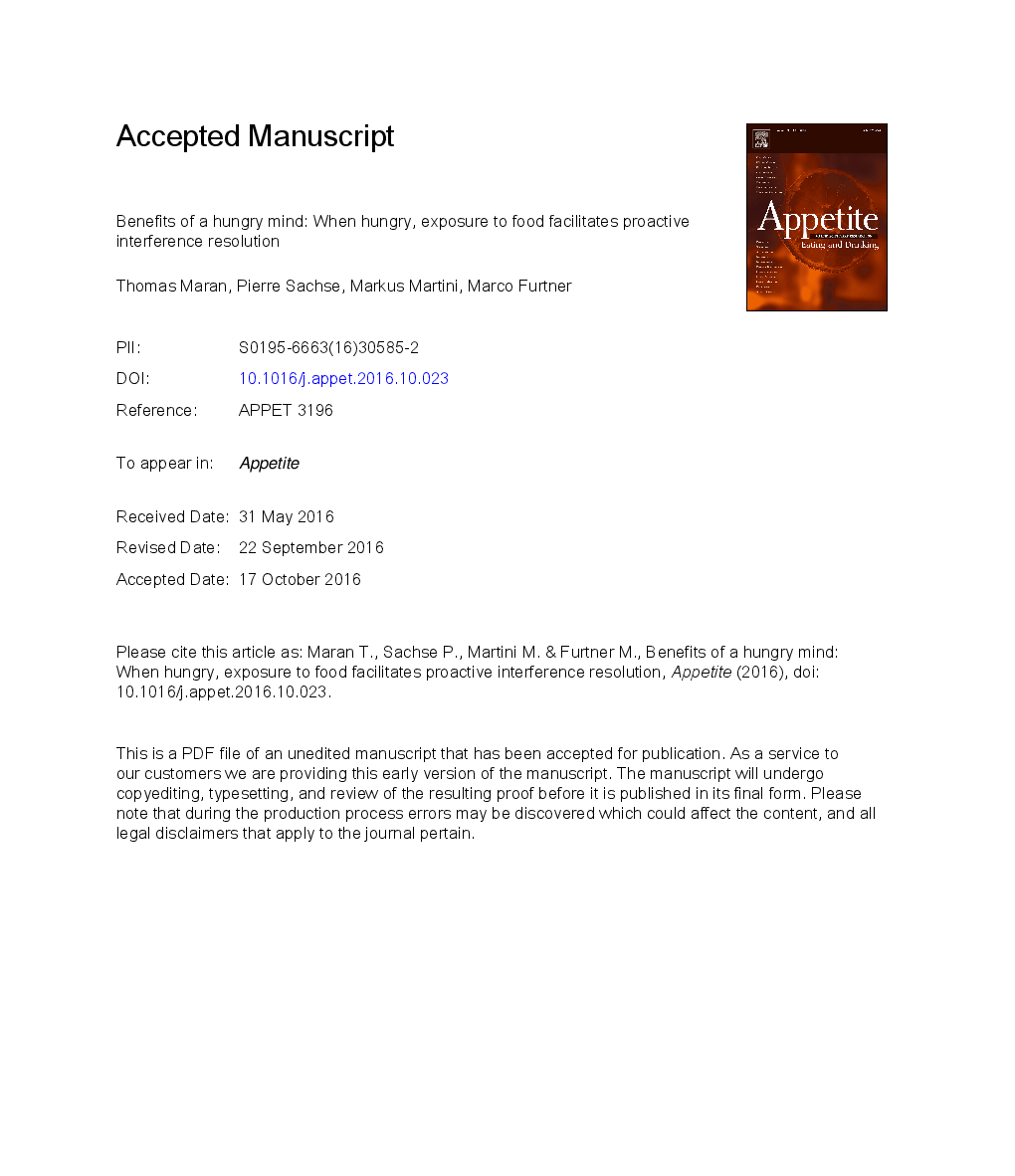ترجمه فارسی عنوان مقاله
مزایای یک ذهن گرسنه: زمانی که گرسنه هستید، قرار گرفتن در معرض غذا باعث تضعیف تداخل پیشگیرانه می شود
عنوان انگلیسی
Benefits of a hungry mind: When hungry, exposure to food facilitates proactive interference resolution
| کد مقاله | سال انتشار | تعداد صفحات مقاله انگلیسی |
|---|---|---|
| 103354 | 2017 | 45 صفحه PDF |
منبع

Publisher : Elsevier - Science Direct (الزویر - ساینس دایرکت)
Journal : Appetite, Volume 108, 1 January 2017, Pages 343-352
ترجمه کلمات کلیدی
انگیزه، گرسنگی، حافظه کاری، کنترل شناختی، تداخل پیشگیرانه،
کلمات کلیدی انگلیسی
Motivation; Hunger; Working memory; Cognitive control; Proactive interference;

